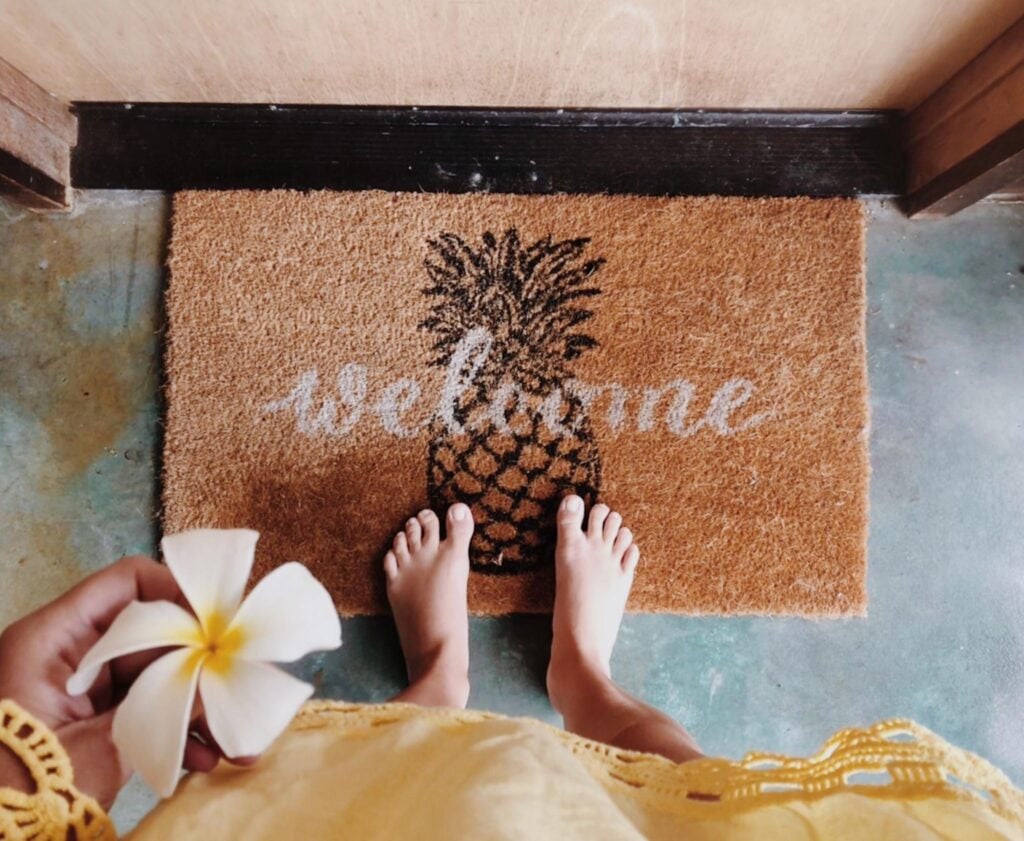It’s no secret the rise of short-term rentals has been a disrupting force in the real estate investing market. In the past, renting out a property for less than a month was mostly restricted to vacation homes as a way for property owners to generate some income on the side.
But with the introduction of technology platforms designed for short-term rental properties, more and more people are capitalising on the trend of vacation rentals. For some landlords, the appeal is clear: you can potentially make more rental income per year from renting your property out short-term than you could from a long-term tenant.
While some challenges do come with being a short-term rental host—such as providing a consistent level of customer service and administrative tasks — the financial upside may be too good to pass up.
So, it might be worth taking the time to weigh the pros and cons of a short-term vs. long-term rental to find out which might be the better investment option for you.
What’s the Investment Appeal of Short-Term Rentals?

For many would-be investors, the appeal of the short-term rental market is obvious. The rise of sites like Airbnb has made it easier than ever to list an investment property as simply a vacation rental and start earning income.
There are several factors that make it an attractive option for investors. First, the barriers to entry are relatively low. Unlike the hotel industry, which requires significant upfront investment in property and infrastructure, anyone can list their vacation rental on Airbnb with just a few clicks.
Second, the demand for short-term rentals is highly flexible. Again, in contrast to hotels, which tend to be booked solid during peak periods and struggle to fill rooms during off-peak times, Airbnb listings can be easily adjusted to meet changing demand levels. This flexibility enables investors to maximise returns by renting out their properties only when demand is high through a smooth booking process.
Furthermore, vacation rental strategies offer a unique set of advantages:
- Higher Rental rate: they typically command higher nightly rates than long-term leases, delivering greater rental income
- Less wear and tear on the property: because guests generally only stay for a brief period of time and you’ll have the property cleaned and maintained between visits, your property is likely to experience less wear and tear.
- Conversion is easy: you can convert your short-term rental to a long-term rental at any time. This provides you with some flexibility down the road if your circumstances change.
- Higher tax breaks: in most cases, you’ll need to furnish your holiday rental, so your depreciation deduction is likely to be a lot higher than if you were renting out an unfurnished, long-term rental.
- Flexibility: some people like the option to be able stay in the property themselves from time to time. Only short-term rentals provide this opportunity.
Are There Potential Drawbacks to a Short-Term Rental Property?
As with any investment strategy, there are potential drawbacks to going the short-term rental route.
One of the biggest concerns is that short-term vacation rental properties are typically less stable in terms of ongoing rental income, as occupancy rates fluctuate depending on the time of year. As a result, there is always the potential for months with little or no rental income, hindering a positive cash flow.
For example, if you are managing an Airbnb on the Sunshine Coast, you’re more likely to have high occupancy rates over the summer or during school holidays and low occupancy rates during the colder months.
The other major consideration is that managing vacation rentals takes quite a lot more work than if you were renting out your property long-term. In addition to cleaning and maintaining the property, you also need to manage bookings, communicate with guests, and deal with any problems that arise.
So, for investors who are looking for a more passive income stream, a long-term rental property may be a better option than a vacation rental. But if it’s high nightly rates and strong positive cash flow you are after, it seems apparent it’s worth the extra effort, so keep reading.
With that in mind, if you partner with a property management company like GrowHOST, they can take care of everything, from marketing your property to guest communication and cleaning coordination, all for low management fees.

What are the Key Benefits of Long-Term Rental Properties?
While both short-term and long-term rentals can be profitable, there are some key benefits to choosing a long-term rental strategy.
First of all, long-term rentals tend to be more stable and predictable than short-term rentals. This is because you are typically dealing with one tenant for an extended period of time, rather than a constantly changing stream of vacationers. As a result, you can expect a steadier income, forecast a stable (or perhaps even a positive) cash flow, and not have to deal with the stress of high tenant turnover.
Secondly, if you’re comparing the two, long-term rentals usually require less work on your part. You won’t need to constantly prepare and clean the property for new guests.
Lastly, long-term rentals also often require fewer upfront costs—there is no need to furnish the unit, and advertising costs are typically lower than for short-term rentals. And in most cases, utility bills are usually paid for by the tenant, which can further reduce expenses.
So, while long-term rentals may not generate the same level of rental income as short-term rentals, they can be a more stable and cost-effective option for landlords.
What are the Disadvantages of a Long-Term Rental Strategy vs Short-Term?
One potential downside to long-term rentals is that they’re inflexible. Let’s say you’ve decided to turn your vacation home into a long-term rental and entered into a year-long lease agreement with the tenant. You’re not going to be able to pop in over a long weekend like you would if you had listed the property on Airbnb.
Second, you generally have less control over the outcome of your property with long-term tenants. Short-term rental owners can inspect the vacation property between each guest and maintain the property to a high standard.
While you may have a property management company managing your investment, they’re not going to be able to organise an inspection every month. So, you may not discover damage or other issues until the end of the lease period.
Finally, finding the right tenant can be a long and difficult process. You want to find someone who will take good care of your property and pay their rent on time. The process of vetting and checking references for potential tenants can be very long process.

Which Strategy Will Work for You? A Short-Term Rental vs. Long-Term Rental?
As you can see, both long-term rentals and short-term rentals have their own unique set of benefits and drawbacks, so it’s important to choose the option that best suits your needs as an investor.
There’s no doubt that short-term rentals can be more profitable than long-term rentals. But are you looking for cash flow or stability? And do you have the time to invest in a short-term property, or are you at least willing to consider hiring a property management company such as GrowHOST?
These are all the things you need to consider.
Overall, it’s up to your own goals and preferences as to whether short-term or long-term rentals are right for you.
However, if you want to play a numbers game and compare actual figures, you can access using our FREE Airbnb Comparison Calculator, which will give a simple annualised cash-flow analysis comparing the two options.
How Can GrowHOST Help Boost Your Rental Income?
If after analysing your cash flow, key benefits and potential risks, you’ve decided that a short-term rental is the right move for you, it’s time to start thinking about how you’re going to manage the property.
Unless you’re committed to 24/7 availability, it’s a good idea to get a property management team to help with the day-to-day operations. That way you can get on with building your property empire! Mwahaha! (insert evil property mogul laugh)
Here at GrowHOST, we’ll take care of everything from marketing and distribution to cleaning and maintenance. Our team of property managers will also deal with any issues that arise, so you can rest assured knowing your property is in good hands.
Beyond that, we can help maximise your profits by optimising your pricing and advertising your property in the right channels. If you’re looking for a hassle-free way to run your short-term rental business, get in touch with a property manager today to discuss our services, property management fees, and how much rental income you could potentially earn.
Oh, and by the way, we are ex hoteliers and know a thing or two about maximising performance, so if it’s outstanding returns you’re after, you can certainly look to us!



